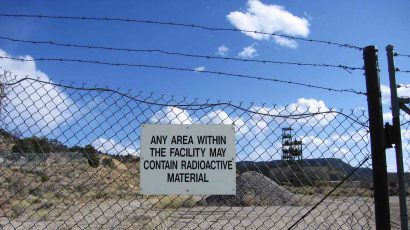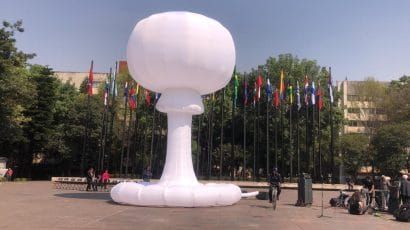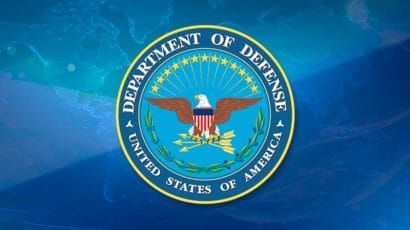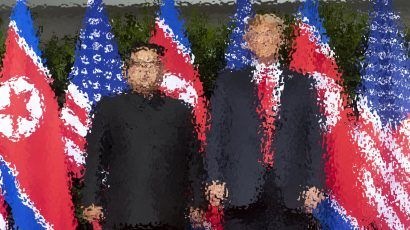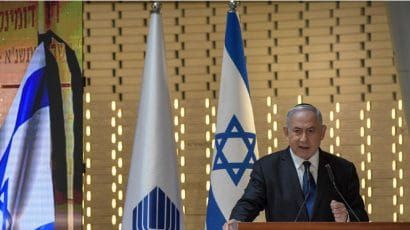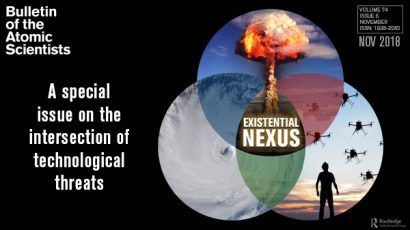Search results for nuclear notebook
Check out our latest interactive, “Know the Time,” an animation of technological advancement and global risk, documented by the Doomsday Clock. It was created by Fabian Stricker, Mapper and Digital Business Integration Analyst, who became concerned about global risk due to the alarming rhetoric used during the 2016 US presidential election. Follow Fabian on Twitter … Continued
Can minimum deterrence save nuclear arms control?
Why the concept of minimum deterrence—which calls for nuclear arsenals much smaller than the United States and Russia now possess—could be a basis for future arms control efforts.
From Chicago to Uganda, scientists track the wildlife diseases that could infect humans—or spark the next pandemic
Zoonotic diseases come from animals, but human activity makes it easier for these infections to spread. Pandemics often originate with a poor decision by one person or a small group, one disease ecologist says.
Of weapons programs in Iran and Israel, and the need for journalists to report on both
Looking at the secret origins of the often-overlooked Israeli nuclear weapons program
After midnight: The July/August issue is available!
Over the decades since the Hiroshima and Nagasaki bombings, the worldwide taboo against the use of nuclear weapons drove agreements such as SALT, START and the INF Treaty. Over the last year, however, the taboo seems to be weakening: North Korea continues to test nuclear weapons, Russia is apparently re-thinking its commitment to the INF … Continued
Does deep de-carbonization require nuclear power?
Nuclear power advocates maintain that nuclear power is essential to a low-carbon future because it emits no carbon dioxide and provides large amounts of baseload electrical generation. However, critics point to nuclear power’s costs and accident and proliferation risks as continuing drawbacks to large-scale nuclear reactor construction. With this important policy discussion in mind, the … Continued
Radiation illnesses and COVID-19 in the Navajo Nation
The coronavirus is spreading on the Navajo Nation through a population that decades of unsafe uranium mining and contaminated groundwater has left sick and vulnerable.
Flight from disarmament
Editor's note: This article is largely drawn from Ramana's featured piece in the report "Assuring Destruction Forever," edited by Ray Acheson and published in April 2012 byReaching Critical Will.
Ten facts about the Doomsday Clock and nuclear risk
10 facts about the Doomsday Clock and nuclear risk 1. Created in 1947, the Doomsday Clock is a symbol for humanity’s proximity to self-destruction. In 2007, the Doomsday Clock began factoring in climate change in addition to nuclear risk. 2. The iconic Doomsday Clock is managed by the Bulletin of the Atomic Scientists, founded in … Continued
Can we govern emerging technologies?
Until recently, research into science and technology was funded primarily by governments. Today, technological breakthroughs are being driven primarily by private firms funded with venture capital. This change in the R&D landscape is leaving governments and international organizations scrambling to craft oversight tools and policies that will help manage the disruptive impacts—and possible threats—resulting from … Continued
Special Issue: Conservatives and Republicans for climate action
The March/April issue is available! Polls make it clear that the American public as a whole, including a majority of Republicans, accepts the science of climate change. Still, congressional Republicans aren’t eager to agree. In the March magazine, the Bulletin talks with Republicans and conservative Christians who do support climate action about how they reconcile their politics with the scientific reality … Continued
What you need to know about the Nuclear Posture Review
On February 2, the Pentagon rolled out the unclassified version of the Trump administration’s Nuclear Posture Review. The 2018 document contains significant changes over the last NPR, which was completed in 2010. The Bulletin will be publishing analyses of the NPR document itself and how it might be implemented.
Debating the UN nuclear weapons ban
To the founders of the Bulletin of the Atomic Scientists in 1945, the idea of a global ban on nuclear weapons would have been cause for celebration. So what should we make of the treaty that was adopted at the United Nations on Friday? Here’s what you need to know: On the prohibition of nuclear … Continued
How the transition from fossil fuels to renewable energy sources will affect world security
An extraordinary global energy transformation will be required for the world to successfully slow and then halt climate change, and that transformation will change the power dynamics among nations. The security arrangements necessary to keep the peace among the powers that vie for an energy advantage in the coming renewables era demand attention now. Here's … Continued
Does Israel really have 200 nuclear weapons, or was Colin Powell exaggerating?
Exaggerating, probably.
How my Gen Z students learned to start worrying and dismantle the Bomb
A life-long opponent of nuclear weapons—raised during the Cold War—reflects on intergenerational lessons about activism, and teaching college students to embrace their curiosity, and their fear, on the way to saving the world.
Hanoi Summit: Read up on US-NK relations
What next for the US and North Korea? On Wednesday, President Trump will meet Kim Jong-un for a second summit, this time in Hanoi, Vietnam. Dive into nuclear policy and the Korean peninsula to learn what can and can’t be achieved in this round of negotiations, and what should be at the top of the … Continued
Israel’s Netanyahu suspends minister for suggesting a nuclear weapons option in Gaza
A junior, far-right minister in the Israeli government was suspended indefinitely on Sunday after he suggested that it would be “an option” for Israel to use a nuclear weapon in Gaza.
New digital journal: Security at sea, and under it
In their article on China’s security agenda in the South China Sea, experts John Lewis and Xue Litai quote Chinese president Xi Jinping: “History and experience tell us that a country will rise if it commands the oceans well and will fall if it surrenders them.” This special issue of the Bulletin of the Atomic … Continued
Special Issue: Existential Nexus
The November/December issue is available! The extraordinarily fast-paced advance across the world’s scientific and technological enterprise constitutes a defining characteristic of the 21st century. In this issue of the Bulletin, leading experts explore how these quickly-changing technologies increasingly intersect with one another and, as they do, pose new types of global threats. SPECIAL ISSUE: Existential nexus: … Continued




